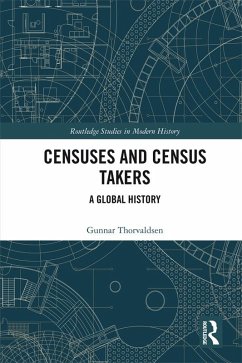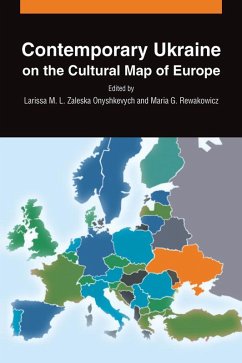
History, Space and Place (eBook, PDF)
Versandkostenfrei!
Sofort per Download lieferbar
0,00 €
inkl. MwSt.
Weitere Ausgaben:

PAYBACK Punkte
0 °P sammeln!
Spaces, too, have a history. And history always takes place in spaces. But what do historians mean when they use the word "spaces"? And how can spaces be historically investigated?Susanne Rau provides a survey of the history of Western concepts of space, opens up interdisciplinary approaches to the phenomenon of space in fields ranging from physics and geography to philosophy and sociology, and explains how historical spatial analysis can be methodologically and conceptually conceived and carried out in practice. The case studies presented in the book come from the fields of urban history, the...
Spaces, too, have a history. And history always takes place in spaces. But what do historians mean when they use the word "spaces"? And how can spaces be historically investigated?
Susanne Rau provides a survey of the history of Western concepts of space, opens up interdisciplinary approaches to the phenomenon of space in fields ranging from physics and geography to philosophy and sociology, and explains how historical spatial analysis can be methodologically and conceptually conceived and carried out in practice. The case studies presented in the book come from the fields of urban history, the history of trade, and global history including the history of cartography, but its analysis is equally relevant to other fields of inquiry.
This book offers the first comprehensive introduction to the theory and methodology of historical spatial analysis.
Supported by Open Access funds of the University of Erfurt
Susanne Rau provides a survey of the history of Western concepts of space, opens up interdisciplinary approaches to the phenomenon of space in fields ranging from physics and geography to philosophy and sociology, and explains how historical spatial analysis can be methodologically and conceptually conceived and carried out in practice. The case studies presented in the book come from the fields of urban history, the history of trade, and global history including the history of cartography, but its analysis is equally relevant to other fields of inquiry.
This book offers the first comprehensive introduction to the theory and methodology of historical spatial analysis.
Supported by Open Access funds of the University of Erfurt
Dieser Download kann aus rechtlichen Gründen nur mit Rechnungsadresse in A, B, BG, CY, CZ, D, DK, EW, E, FIN, F, GR, HR, H, IRL, I, LT, L, LR, M, NL, PL, P, R, S, SLO, SK ausgeliefert werden.













